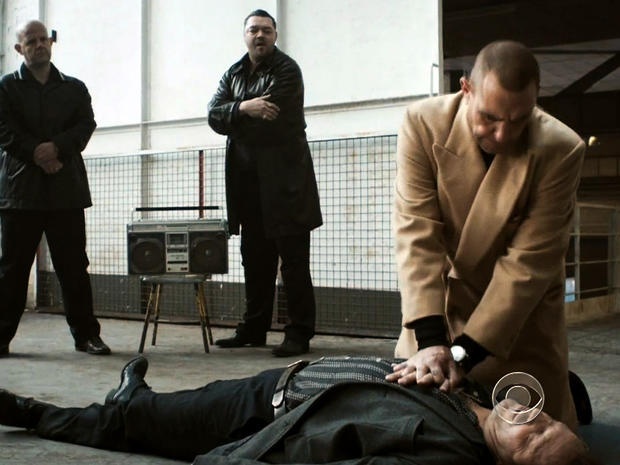Extra helping hands seen as making a difference in cardiac arrest emergencies
(CBS News) In case of a cardiac emergency, three bystanders may not be a crowd - they may actually save more lives.
New research published online in the June 2012 issue of Resuscitation shows that if two "rescuers" tried to help a person who went into cardiac arrest in public, the victim had a higher chance of survival than if only one person helped. However, if three people tried to help a person, the victim's survival rate was twice as high than if one person came to their aid.
For the study, Japanese researchers at Kanazawa University Graduate School of Medicine looked at more than 5,000 cases of adults who went into cardiac arrest outside of a hospital.
Six percent of people who went into cardiac arrest who had three or more rescuers come to their aid were alive one year later. Those who had two rescuers had a 4 percent survival rate. And, of those who had one person come to their aid only 3 percent of them survived one year later. The percentages were lower when favorable neurological outcomes were taken into account.
However, when it came to cardiac arrests suffered at home - where 88 percent of cases occur, according to the American Heart Association - there was no benefit to having more people help in an emergency.
Researchers noted that they thought that some of the bystanders may have tried to help in some way, but did not know if all the rescuers knew or used CPR.
Dr. Michael Sayre, an associate professor of emergency medicine at Ohio State University in Columbus and a spokesman for the AHA, told Reuters that he believed the study confirmed the importance of having people willing to help and the importance of early CPR. He added that people who are "out and about" during their cardiac episode may also be healthier than those who are at home, which may lead to them having a higher survival rate if more people are give them aid.
The American Heart Association reports that about 295,000 emergency medical services-treated out-of-hospital cardiac arrests in the United States each year. But, emergency medical services are not always the first on the scene. With a reported 70 percent of Americans saying they feel helpless because they do not know how to administer CPR or feel their training was too long ago, this study could help encourage people to give any help they can provide because their assistance may increase the probability of saving someone's life.
Sayer added that while CPR classes are available, people can learn hands-on CPR simply by watching a video that the American Heart Association has posted on their website to train people in the hands-only version of the procedure. To find out more, click here.
Or take a tip from British action star Vinnie Jones, by performing the compressions to the tune of the Bee Gee's hit "Stayin Alive."

